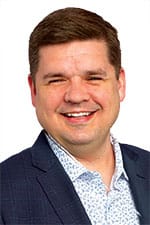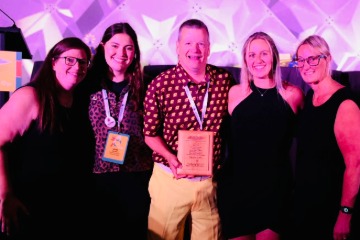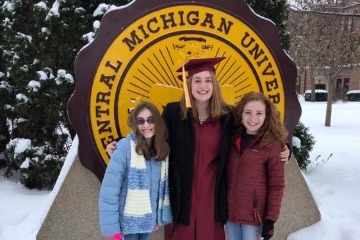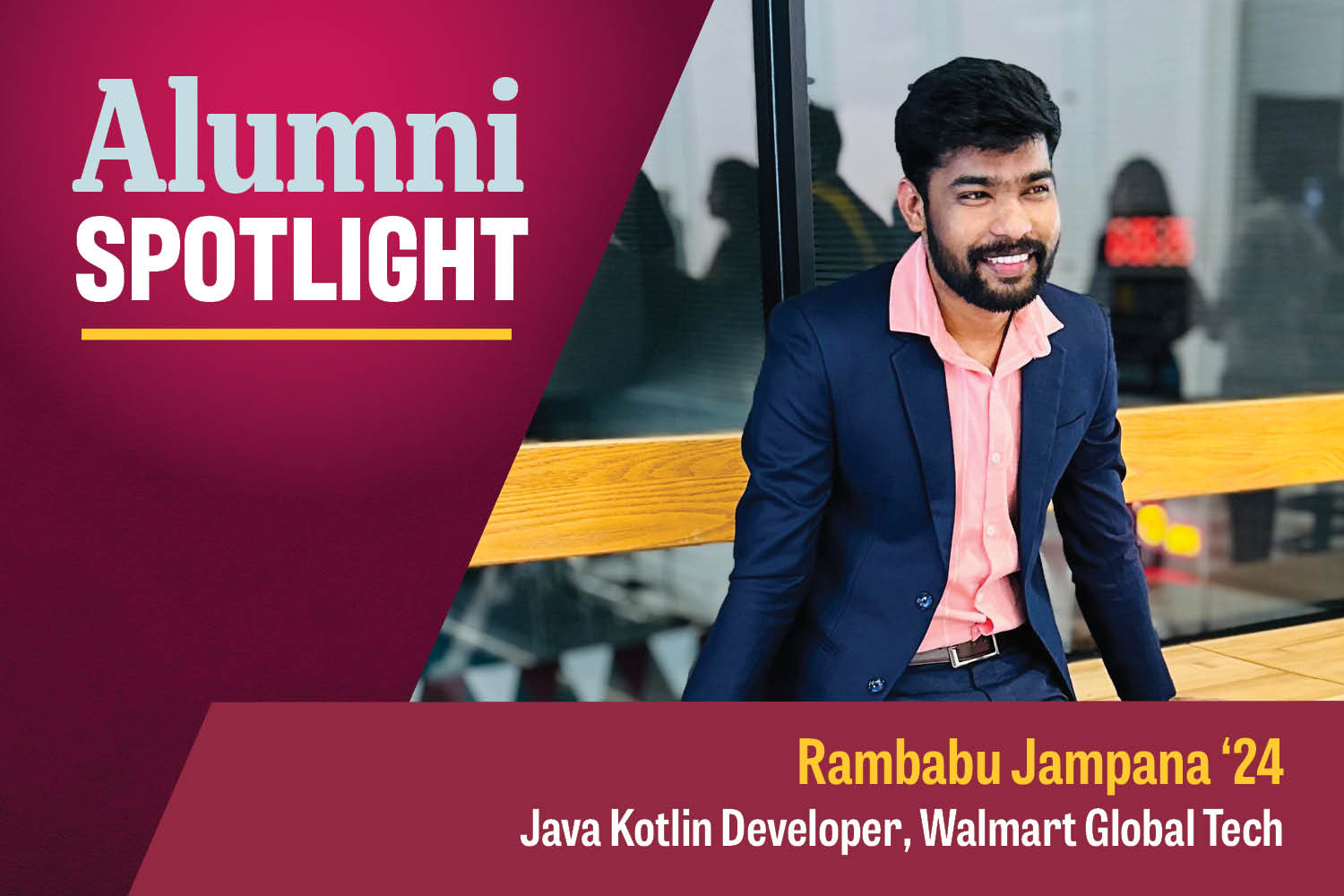A college access ambassador
Alum helps Michigan's students find the right fit
By Robin Miner-Swartz
Adapted from Centralight Fall 2020
Growing up in the small northern Michigan town of Gaylord, Ryan Fewins-Bliss was aware of one path beyond high school: college.

"I didn't know there were other options," he said. "My family had that privilege. I went straight to CMU and never looked back."
As a student, he worked in the Volunteer Center and got to see the challenges of community and social issues firsthand in Mount Pleasant and across the country through Alternative Breaks, the program in which students participate in local, national and global community direct-service experiences dedicated to social justice.
"It gave me a better understanding of how the world worked and what my place in the world was," said Fewins-Bliss, who earned his undergraduate degree from CMU in 2002 and a master's degree in 2004. "It became clear to me that I was going to do something around social justice and public service. Without CMU and the campus experience, I wouldn't have found that."
Today, Fewins-Bliss is executive director of the Michigan College Access Network. MCAN helps students in Michigan access and attain college degrees and certificates — foundations for success in a knowledge-based economy — so they can achieve a lifetime of their own goals, both economically and intellectually.
"Every bit of evidence, every report, every research study that exists says we need more postsecondary attainment in Michigan — and in the country — to fill the jobs with the talent that is required," he said. "If we don't, we'll have people in Michigan and the U.S. who are unable to find work, and we'll start importing talent from other states and countries."
MCAN believes that by overturning the barriers preventing many students from accessing postsecondary education, they become empowered to thrive and make a positive impact in their communities — making all of Michigan stronger.
Whether that means earning skilled trade certificates, associate degrees, bachelor's degrees or beyond, some form of postsecondary education is for everyone, he said.
"Students are looking for meaningful experiences, a way of making an impact," Fewins-Bliss said. "They want a good work-life balance. Their parents want them to have jobs that pay well."
So MCAN talks to students and parents about match and fit.
"We talk about students having a full menu they can pick and choose from," he said. "And with access to funding through the Free Application for Federal Student Aid, their family's income shouldn't bar them from choosing some kind of postsecondary education. It's about finding the right fit."
“When I hit the job market, I’d already run a $100,000 program, applied for grants and done grant reviews.” — Ryan Fewins-Bliss For Fewins-Bliss, that fit came at CMU.
"The opportunities I had beyond the classroom had a big impact on me," he said. "I was president of the Alternative Breaks group, and that empowered me to take leadership and ownership as a student. When I hit the job market, I'd already run a $100,000 program, applied for grants and done grant reviews."
He said as an undergrad, he had a passing understanding of the value of college.
"I knew it would help you get to the next step, pay you a good wage," he said. "I had no idea I'd meet my best friends for life, I'd meet my husband in Mount Pleasant, I'd get to see the Dalai Lama and build houses in Romania.
"It all happened because of Central."
The Michigan Department of Technology, Management and Budget notes that 43 of the 50 "hot careers" in Michigan require formal learning past high school. And 70% of Michigan's jobs require a post-secondary education of some kind.
"Communities benefit from sending people to higher education," he said. "When we invest in students and give them the support to be successful, it helps all of us."
College access also promotes equity in Michigan. MCAN works to ensure that every student in Michigan has the opportunity to attend college — especially low-income students, first-generation college-going students and students of color.
"At CMU, my mentors cared about me as something more than a number, more than someone paying tuition," he said. "They wanted me to be successful, and they expected me to use those skills to help others."




